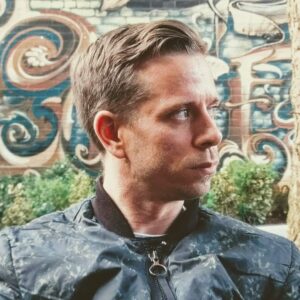I have always been curious about how and why we motivate ourselves for the things that we do and don’t want to do. In my own life I have had periods of extreme focus and motivation where I would train Taiji / Qi Gong for over 4 hours a day. Yet there were other times when it felt like nothing was going my way and I didn’t want to give even a second to bettering myself. So I have been interested in this subject for a number of years and have observed how others found motivation and what factors were involved in whether or not they succeeded.
During my Feldenkrais training I had the opportunity to do care work with a stroke survivor called Barry. He had had two strokes within days of each other, one of which was in the brain stem stroke and left him completely unable to move. He was reliant on his wife and care team for every aspect of his daily life, from getting up in the morning, personal hygiene, eating, all the way through to night time where he was assisted with a hoist back into bed again.
I had the pleasure of working with Barry for over two years, almost daily, and I can honestly say it was one of the most impactful learning experiences of my life. Seeing how he dealt with his day to day challenges, how he related to his wife and family and how he managed to keep fighting for change all the way through until he passed away was inspirational.
When I first arrived his wife informed me that the NHS, the healthcare service here in the UK, had told him on a number of occasions that he would never get any better, and that there was nothing they could do for him from a physiotherapy perspective. The limit of the care they provided was some assisted movements to help keep his joints mobile from the prolonged periods of inactivity, whether in bed or in his wheelchair.
As I had the enthusiasm of a newly trained Feldenkrais teacher, I jumped straight in and informed him that change was possible, that the brain could build new neural connections, and there was a reason to be optimistic about his ability to learn. This was a huge relief to him and his wife, as they both were pretty angry with the NHS and didn’t think he was given appropriate guidance to follow after the strokes occurred. They also had in their mind the idea that they would love him to be able to walk again one day. I was cautious around setting such a lofty goal, as I am not a trained neurologist and had only a rudimentary understanding of the parts of his brain that were damaged, and whether all the necessary elements required for walking were still present.

As part of my care work I carried out daily movement lessons, where I guided Barry through a number of movement explorations. We focused mainly on his breathing, eye movements, jaw and tongue movements, because those were the parts of his body that he had a degree of control over. But we also did many lessons in his imagination where I encouraged him to think through coordinating his limbs and his back.
In the beginning, he was in a tonic state, where all of his muscles were tight and he was perpetually pulled forward because of the weight of his head. But eventually he was able to coordinate his legs and back muscles to the point of sliding himself back up the bed if he was lying with his feet in contact with the bed frame. The first time he did it, it was a pretty special feeling for both of us, to see that the hard work and persistence could pay off and that change was indeed possible.
All of these small successes really helped with his motivation and gave both him and his wife the sense that life in the future could be just a little better than the very difficult situation that they found themselves in.
Barry of course would have good days and bad days when it came to motivation. Sometimes after finding a movement , he would be unable to do it again the next day. But he was a determined guy and, with my help and constant reaffirmation, he started to become a lot more relaxed. His personality started to return and he would have a joke with me and the other carers. He had a huge smile and his laugh would occasionally send him into a coughing fit that would make him fully collapse in his wheelchair and we would have to reposition him afterwards.
When I started working with him in sitting it became apparent to me that he was not able to regulate his balance, which meant that he would never be able to support his own weight either in sitting or in standing. Unfortunately, in my estimation, that meant that he would not be able to walk again. I think on some level he understood this, even from the start, but he set it as his goal regardless. He desperately wanted things to go back to the way they were so he could spend time with his wife again without the stress of her managing a wheelchair, as she herself was over 70.
Barry is no longer with us. He passed away at the age of 72 and while he didn’t get his wish to be able to walk again, I truly believed that I helped him feel more like himself again and that was an important gift. The final part of his life was quite sad, as his wife’s health went downhill quickly and it was discovered that she had an aggressive form of cancer that was terminal. After her death Barry lost his reason to fight for change and while we would still do some movement lessons every day, he didn’t have the same drive for it. He was just going through the motions, and in some way I think he was ready to move on as well.
Not long after his wife’s death, Barry also passed away from a persistent respiratory illness that he was not able to recover from.
It was clear to me after this experience that our reasons for being motivated are very deep and very personal. It’s not as simple as making a goal for ourselves and sticking to it. We are human and our minds and our hearts need to be in alignment in order for healthy motivation to be present. I was reminded of the famous book Man’s Search for Meaning written by Victor Frankl. Where he recounts how he had his wife in mind as a constant source of comfort and motivation through his experience of being held in a concentration camp in Nazi Germany. She was his ‘meaning’ or his reason to keep living and I think that was true for Barry and his wife as well.
I will always cherish the time that I spent with Barry, making jokes and making progress. I think his wife and family really valued the work we did together as it meant they could spend additional time with such a lovely man. Rest in peace Barry.
 About Joe
About Joe
Joe began his study of Qi Gong, Taiji and Meditation when he was 18, over 20 years ago.
He was lucky to train under a Taiji grand master and lineage holder in both Chan (Zen) and Tibetan Buddhism.
He began studying the Feldenkrais method to help him deal with some physical challenges developed through overtraining, and some mental / emotional challenges from many years of experiencing anxiety symptoms. The process was so impactful that he decided to undertake the 4 year training in the method and has since qualified as a Feldenkrais practitioner in 2020.
He is now based in Bristol in the UK, and teaches classes and 1 to 1 lessons, locally and online.
More information is available via his website: Thoughtful Movements

